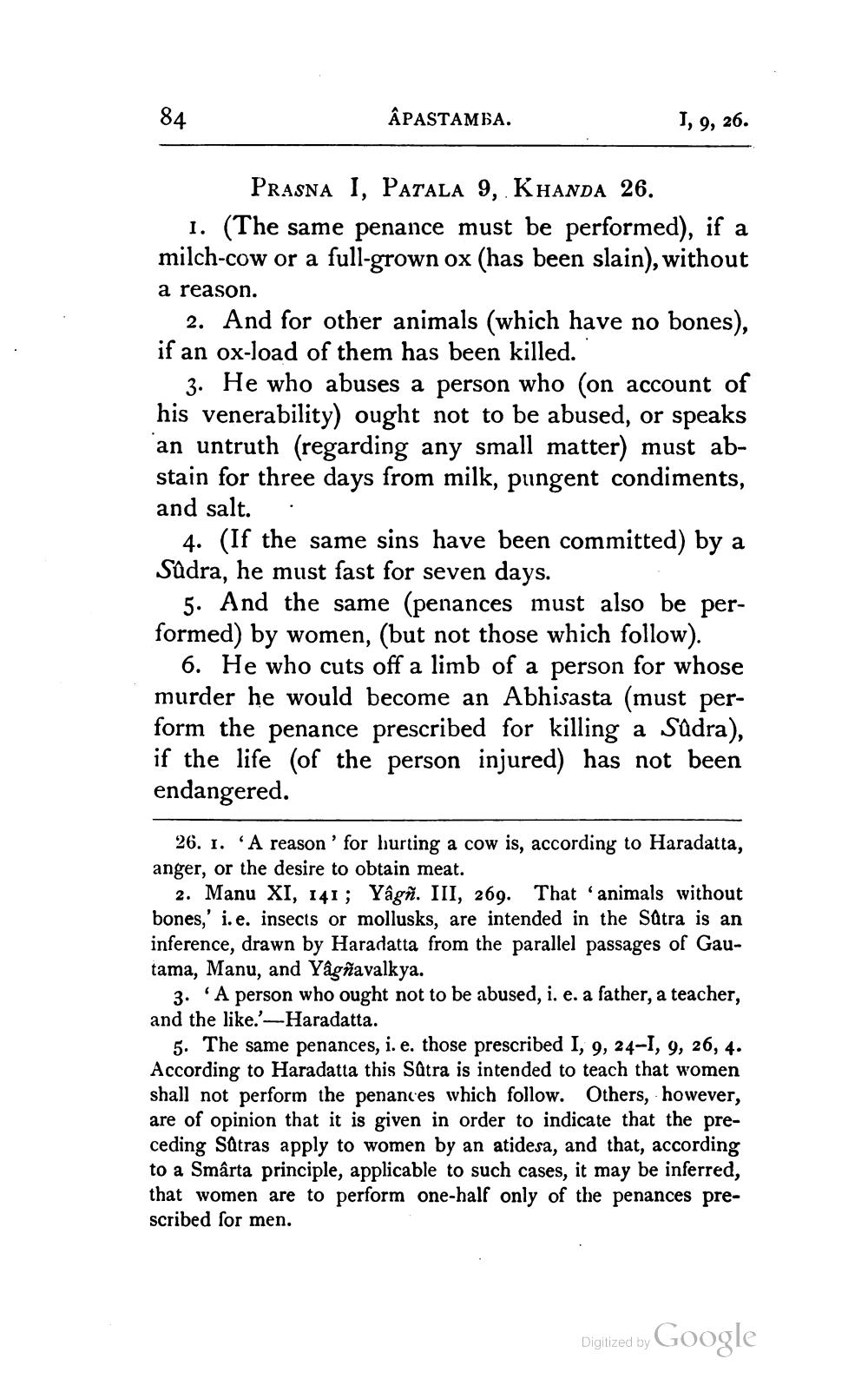________________
84
ÂPASTAMBA.
I, 9, 26.
PRASNA I, PATALA 9, KHANDA 26.
1. (The same penance must be performed), if a milch-cow or a full-grown ox (has been slain), without
a reason.
2. And for other animals (which have no bones), if an ox-load of them has been killed.
3. He who abuses a person who (on account of his venerability) ought not to be abused, or speaks an untruth (regarding any small matter) must abstain for three days from milk, pungent condiments, and salt.
4. (If the same sins have been committed) by a Sûdra, he must fast for seven days.
5. And the same (penances must also be performed) by women, (but not those which follow).
6. He who cuts off a limb of a person for whose murder he would become an Abhisasta (must perform the penance prescribed for killing a Sûdra), if the life (of the person injured) has not been endangered.
26. 1. A reason' for hurting a cow is, according to Haradatta, anger, or the desire to obtain meat.
2. Manu XI, 141; Yâgn. III, 269. That animals without bones,' i. e. insects or mollusks, are intended in the Sutra is an inference, drawn by Haradatta from the parallel passages of Gautama, Manu, and Yâgnavalkya.
3. 'A person who ought not to be abused, i. e. a father, a teacher, and the like.'-Haradatta.
5. The same penances, i. e. those prescribed I, 9, 24-I, 9, 26, 4. According to Haradatta this Sûtra is intended to teach that women shall not perform the penances which follow. Others, however, are of opinion that it is given in order to indicate that the preceding Sutras apply to women by an atidesa, and that, according to a Smârta principle, applicable to such cases, it may be inferred, that women are to perform one-half only of the penances prescribed for men.
Digitized by
Google




